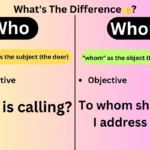Language is a fascinating, ever-evolving tool that reflects our history, culture, and society. One intriguing aspect of language is the way it changes and adapts over time, leading to variations in spelling, pronunciation, and meaning.
One such example is the term “newfound.” Is it “newfound,” “new-found,” or “new found“? Understanding these regional variations and their historical context can shed light on the complexities of English spelling and usage.
This blog post will delve into the origin, evolution, and contemporary usage of “newfound,” exploring how regional preferences and style manuals influence its spelling.
By the end of this article, you’ll have a comprehensive understanding of this term and its variations.
The Origin and Historical Use of “Newfound”
The word “newfound” has a rich history that dates back several centuries. Its origin lies in the combination of “new,” meaning recent or fresh, and “found,” the past participle of “find.”
Historically, “newfound” was used to describe something that has been discovered or recognized for the first time. This term was often applied in the context of exploration and discovery.
In the 16th century, “newfound” was frequently used in literature and exploration narratives. For instance, in the works of early explorers like John Cabot and Jacques Cartier, the term “newfound” appeared to describe newly discovered lands, such as Newfoundland in Canada.
Over time, the usage of “newfound” extended beyond geographical discoveries to encompass new ideas, emotions, and phenomena.
Historical Context and Examples
- John Cabot’s Voyage: In 1497, John Cabot’s discovery of Newfoundland was one of the earliest recorded uses of the term. The land was referred to as “New Founde Landes” in contemporary accounts.
- Literary Works: Shakespeare’s plays often included the term “newfound” to describe new emotions or situations. For example, in “The Tempest,” the character Prospero speaks of “newfound” joys and sorrows.
Exploring the Evolution of “Newfound”
The spelling and usage of “newfound” have evolved significantly over the centuries. Initially, “new-found” with a hyphen was the predominant form, reflecting the traditional English practice of hyphenating compound adjectives. However, as language evolved, the trend shifted towards simplification, leading to the more common modern spelling, “newfound.”
Influences on Language Evolution
- Print Media: The advent of print media played a crucial role in standardizing spelling. Publishers and printers often simplified words to save space and reduce printing costs.
- Linguistic Trends: The 19th and 20th centuries saw a trend towards simplifying English spelling, influenced by movements such as the spelling reform efforts of Noah Webster in the United States.
Examples of Evolution
- Early Use: “New-founde” (16th century) – Reflects the original compound form.
- Transitional Use: “New-found” (18th-19th century) – Hyphenated but more streamlined.
- Modern Use: “Newfound” (20th century-present) – Simplified and widely accepted.
Newfound in Contemporary Usage
In contemporary English, “newfound” is the most widely accepted and used form. It appears in various contexts, including academic writing, journalism, and everyday speech. The term “newfound” is often used to describe recently discovered phenomena, emotions, or conditions.
Common Usages
- Emotions: “Newfound joy” or “newfound confidence.”
- Conditions: “Newfound freedom” or “newfound wealth.”
- Discoveries: “Newfound species” or “newfound evidence.”
Examples in Modern Writing
- Journalism: “The scientist’s newfound discovery has the potential to revolutionize medicine.”
- Literature: “She embraced her newfound independence with enthusiasm.”
The Great Debate: Newfound vs New-Found
The debate over “newfound” versus “new-found” reflects broader trends in English spelling and grammar. Historically, the hyphenated form “new-found” was more common, but over time, the unhyphenated “newfound” has become the standard.
Arguments for “Newfound”
- Simplicity: “Newfound” is easier to read and write, aligning with the trend towards simpler spelling.
- Consistency: Many compound adjectives have dropped hyphens over time (e.g., “coworker” instead of “co-worker”).
Arguments for “New-Found”
- Clarity: Some argue that the hyphen clarifies the compound nature of the adjective.
- Tradition: The hyphenated form preserves historical spelling conventions.
Examples in Literature and Media
- “Newfound”: “Her newfound success brought her much joy.”
- “New-Found”: “His new-found abilities surprised everyone.”
Regional Preferences: UK vs. US Spellings
The spelling preferences for “newfound” versus “new-found” can vary between the United Kingdom and the United States. Generally, American English favors the simpler, unhyphenated form, while British English is more likely to retain the hyphen.
Differences in Spelling Conventions
- American English: Prefers “newfound” for its simplicity and consistency.
- British English: More likely to use “new-found,” reflecting a preference for traditional spelling.
Examples of Regional Variations
- US Example: “The newfound technology is revolutionizing the industry.”
- UK Example: “The new-found freedom of the press is a welcome change.”
Other Words with Similar Variations
- American English: “Coworker,” “email.”
- British English: “Co-worker,” “e-mail.”
The Case of “New Found” – A Common Misuse?
The term “new found” is a common misuse resulting from a misunderstanding of the compound nature of “newfound.” While “new found” might seem correct at first glance, it is not grammatically accurate.
Reasons for Misuse
- Lack of Awareness: Many people are unaware of the correct compound form.
- Influence of Similar Phrases: Phrases like “newly found” can contribute to confusion.
Examples and Analysis
- Incorrect: “She celebrated her new found wealth.”
- Correct: “She celebrated her newfound wealth.”
Hyphenation and Its Role in English
Hyphenation plays a crucial role in English, affecting readability and comprehension. Understanding when and how to use hyphens can clarify meaning and enhance writing.
General Rules for Hyphenation
- Compound Adjectives: Use hyphens to link words that function together as a single adjective before a noun (e.g., “well-known author”).
- Avoiding Ambiguity: Hyphens can prevent confusion (e.g., “re-cover” vs. “recover”).
Impact on Readability
- Enhanced Clarity: Hyphens can make sentences easier to read by clearly linking related words.
- Potential Confusion: Incorrect hyphenation can lead to misunderstandings.
Examples of Hyphenated vs. Non-Hyphenated Words
- Hyphenated: “High-quality products,” “well-known artist.”
- Non-Hyphenated: “High quality,” “well known.”
Hyphenation Rules: Guidance from Notable Style Manuals
Different style manuals provide specific guidelines for hyphenation and compound words. Here, we’ll explore the perspectives of the AP Stylebook and the Chicago Manual of Style on “newfound” and “new-found.”
AP Stylebook Insights on Hyphenation
- General Guidelines: The AP Stylebook advocates for minimal use of hyphens, preferring simplicity and readability.
- Specific Rules: Use hyphens for compound adjectives before nouns but avoid them when the meaning is clear without the hyphen.
- Examples: “Newfound” is preferred over “new-found.”
The Chicago Manual of Style’s Stance on Compound Words
- General Guidelines: The Chicago Manual of Style provides more detailed rules for compound words, including when to hyphenate.
- Specific Rules: Hyphenate compound adjectives before a noun but avoid hyphens for familiar compound terms.
- Examples: “Newfound” is accepted, but “new-found” can be used for clarity in some contexts.
How Language Evolution Simplifies Spelling
The trend towards simplifying spelling is a hallmark of modern English. This trend aims to make writing more accessible and easier to understand.
Examples of Simplification
- Old vs. New: “Co-operate” became “cooperate,” “e-mail” became “email.”
- Impact on “Newfound”: The shift from “new-found” to “newfound” reflects this simplification trend.
Benefits of Simplified Spelling
- Ease of Learning: Simplified spelling makes English easier to learn for non-native speakers.
- Consistency: Reduces confusion and promotes consistency in writing.
“Newfound” in Popular Culture and Literature
“Newfound” has made its mark in popular culture and literature, often used to describe new discoveries, emotions, or conditions.
Examples in Books, Movies, and Media
- Books: “Her newfound courage led her to face the dragon.”
- Movies: “The protagonist’s newfound powers were both a blessing and a curse.”
- Media: “The band’s newfound popularity brought them international fame.”
Analysis of Cultural Trends
The usage of “newfound” in popular culture often reflects broader societal trends, such as the celebration of new achievements or the exploration of new frontiers.
Notable Quotes and Excerpts
- Quote: “With newfound freedom comes newfound responsibility.”
- Excerpt: “The author’s newfound success was a testament to her hard work and perseverance.”
What People Ask:
1. What is the difference between “newfound” and “new-found”?
“Newfound” (unhyphenated) is the modern, widely accepted form, while “new-found” (hyphenated) is an older form more common in British English or traditional contexts.
2. Is “new found” correct usage?
No, “new found” as two separate words is incorrect in this context. The correct forms are “newfound” or “new-found” as a compound adjective.
3. When should I use “newfound” in writing?
Use “newfound” to describe something recently discovered or newly recognized, such as “newfound confidence” or “newfound interest.”
4. Do American and British English differ in using “newfound” or “new-found”?
Yes, American English prefers “newfound” without a hyphen, while British English may use “new-found” more frequently.
5. Are there other words similar to “newfound” with regional variations?
Yes, other words like “coworker” (American English) vs. “co-worker” (British English) have similar variations in hyphenation preferences.
Conclusion
Understanding the variations and evolution of the term “newfound” provides valuable insights into the complexities of the English language. From its historical origins to contemporary usage, “newfound” reflects the dynamic nature of language and the influences of regional preferences and style guides.
Whether you encounter “newfound,” “new-found,” or even the incorrect “new found,” recognizing the nuances of this term can enhance your writing and appreciation of English.

As an experienced English teacher, I’m Jessica Thompson, here to make grammar and vocabulary simple and fun. Join me on TalkSpeaker as we explore the language together, one lesson at a time!



